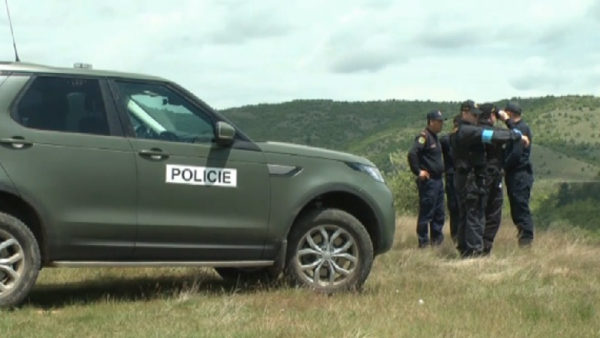The respondent is a 31-year-old Algerian man. He was pushed back from Albania to Greece on the 4th of December 2020. According to the respondent, the pushback happened here. It was the fourth time he had been pushed back.
The respondent was attempting to reach the city of Tirana, Albania. He travelled in a group with two other Algerian men. When they walked through the village of Kuçi i Zi the group were ambushed by four Albanian men in their mid twenties. They arrived on two motorcycles and stopped the group. The four men threatened them with guns. The respondent believed that they were not connected to Albanian authorities.
“If you try to avoid the big city Korca, you will walk through four villages and in these villages they know the people are avoiding Korca. They know everything. Most of the people are good people, only those four guys, I don’t know why they did that.”
With the guns pointed at them, the group was forced to kneel. The four men questioned the group about their countries of origin and then demanded their credit cards.
“I told them: I don’t have a credit card. They took two phones from us and they took € 200 Euros and that is all we had.”
The respondent recalled that the four men seemed “scared”.
“ I was scared as well because if someone is scared and they are holding a gun in their hand, I can not do anything.”
After the four armed men stole the group’s valuables, they gave them a bottle of water and told them “good travels”.
In the next village, the group talked to a local man about the incident. Through the conversation they learnt that these four armed men are well known in the area. It was reportedly not the first time they had stolen the valuables of people-on-the-move (POM) passing through the village.
The group continued walking in the direction of Tirana when they were stopped by three police officers in the village of Trebinjë. The authorities were wearing dark blue uniforms and balaclavas. This matches the description of the Albanian border police (Policia Kufitare).

“When they stopped us they were so kind with us and we thought that they would bring us to a camp or Tirana center because we were so close to the capital and then they just took us to that place and they drove us to the border.”
Without explanation, the group was loaded into “new looking” Land Rovers. The respondent remembered the officers driving the car, from the last time he was pushed back.
“It’s always the same people driving the cars. I have been pushed back four times, always the same people.”
They were driving for, what felt like 30 minutes. They reached what the respondent called “a small camp close to the border”. Here the authorities took the respondent’s fingerprints as well as his personal information. The officers recognized that the respondent’s fingerprints have been taken before. They threatened the group: “If you’ll be back here another time, we will charge you as smugglers.”
After around ten minutes the respondent was put in one of the same Land Rovers and driven to the border. They arrived at a small road in the forest, the respondent called “piste”. This was approximately here.
At the border, the respondent found more POM, already waiting there. They were now a group of approximately 25 POM. He recalled the group consisting of the two Algerian men he was travelling with, three Moroccan men and eleven Syrian men as well as six women with their children. The children were no older than 6-years-old.
Here the group encountered some people. The respondent claimed they were part of “a big European human rights NGO”. He could not recall the name of said NGO but described them as having a blue emblem with the stars of the European Union on it. According to the respondent;
“They found us and they spoke with us but they didn’t do something for us.”
The respondent reported that he and his group were pushed back over the border while the members of the NGO were watching. He remembers the pushback as follows:
“There is no barbed wire fence, there is nothing. It’s just an invisible line. They showed us the road and they told us you have to follow this road and this is Greece. Go back to Greece.”
The authorities did not use violence. When the respondent asked for asylum the officers laughed at him.
“If you ask them for asylum they start laughing at you. When they started laughing at me I thought that asylum does not exist in this country. I felt like a joke.”
After crossing the border the respondent walked for 10 kilometers until reaching the first village on the Greek side. The respondent stated that the journey was very exhausting because the road was steep and there were wild dogs menacing him. He kept them away with the flashlight of his phone.
The respondent returned to Thessaloniki.
